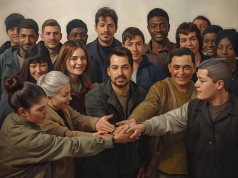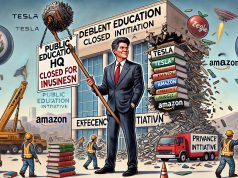In the pantheon of diverse voices that decorate the halls of academia, there lies a cadre of experienced leaders whose stories often remain untold: veterans. Their journey from the structured world of military service to the freeform realm of higher education is a transition rife with challenges yet buoyed by untapped potential. This narrative aims to spotlight the unique experiences of veterans who strive to further their education, while also advocating for systemic changes that acknowledge and harness their distinctive strengths.
Veterans emerge from their service not only with a heightened sense of discipline and structure but also with a wealth of real-world experiences that can enrich any classroom dialogue. Yet, as they exchange their uniforms for textbooks, many find the transition to be disorienting. The struggle to translate military training credits into recognized academic qualifications can feel like deciphering an unfamiliar code. This bureaucratic maze often leads to veterans having to retake courses or lose valuable time and financial resources.
Moreover, the cultural shift from a military environment to a collegiate one is profound. Many veterans find themselves in classrooms with peers who are years younger and who might not fully grasp the magnitude of their military experiences. This generational gap can breed a sense of isolation among veteran students, who may struggle to find their place in the campus social fabric.
The arena of mental health presents another critical barrier. Veterans often carry the weight of intense and sometimes traumatic experiences that can manifest in the need for specialized support services. These needs are not always visible to the academic community, and when they are, they might not be adequately addressed by traditional campus resources.
What, then, can higher education institutions do to better integrate and serve this unique population? A multi-pronged approach is required – one that starts with re-evaluating admissions policies to recognize military training as valuable learning experience. Curriculum design also demands a closer look; incorporating perspectives on leadership, global affairs, and crisis management from a veteran’s viewpoint could not only validate their experiences but also elevate the learning for all students.
Campuses must also expand their support networks, offering services tailored to veterans’ needs such as career counseling that understands the nuances of their resumes, or mental health services attuned to their specific concerns. Through a thorough implementation of such resources, universities can create an environment where veterans feel supported and valued, thus enabling them to thrive.
To illuminate these points, our exploration includes personal narratives from veterans who have navigated the sphere of higher education, as well as insights from educators and policymakers at the forefront of this crucial dialogue. Their stories and perspectives underscore the need for academia to not just open its doors to veterans, but to actively seek out and embrace the richness of experience they offer.
The question then is not merely how can our educational institutions accommodate veterans, but how can they evolve to ensure that veterans become integral to the academic community and, by extension, how can they leverage this integration to prepare all students for a complex, globalized world?
This exploration serves as both a call to action and an invocation for deeper understanding. It is a testament to the myriad ways in which higher education can benefit from, just as much as it contributes to, the inclusion and success of veteran scholars among its ranks.




























